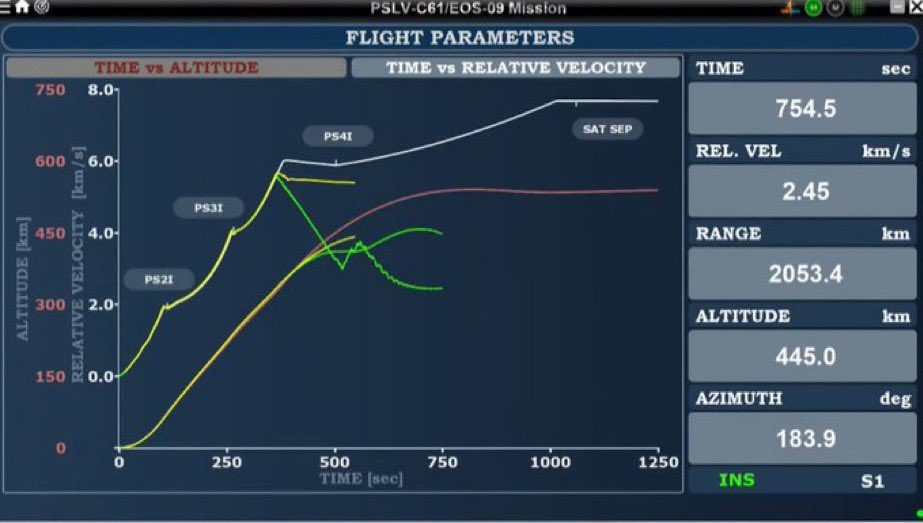The election of maverick businessman and official Republican candidate, Donald Trump, as president-elect, like the UK’s vote for “Brexit”, was seen as a “revolt against the establishment”. But what will this mean for the US space programme and the space industry as a whole?
How did he win?
The cause(s) of the electoral rout: was it really a revolt against Hillary Clinton and the rest of the censorious politically correct establishment? Maybe in part. But actually it was more about family economics, with a growing resentment against globalisation and mass immigration, and their apparent detrimental effects on US jobs and wages. It was thus the concerned working-class voters in northern states like Wisconsin and Pennsylvania – two breakthrough states in the Clinton’s “blue wall” – who decided the election. By the way, only about half the eligible population of USA voted.
So what will Trump’s Presidency mean for Space?
Trump has said that the day Neil Armstrong stepped onto the Moon in 1969 was a day he felt proud to be an American. Yet he promises a “full review” of the current US Space Programme to make sure it is giving value for money and to set its priorities. This is likely to mean the reinstitution of the National Space Council as an overseeing body.
During his campaign, Trump let slip that he would prefer to give funding to “fix the potholes” than to finance long-range space exploration. As such, funding for NASA is likely to remain flat. That will be a problem for the new NASA Administrator whoever he or she may be (Charles Bolden will be leaving this post in January).
Nevertheless, the new president’s policy on space is expected to follow the current administration’s stance of supporting public-private partnerships. Trump has been fulsome in his praise of the commercial resupply (and planned crew) missions to the International Space Station (ISS), which are funded by NASA.
He is pro-defence, albeit that he has warned fellow NATO nations to up their spending (presumably to the NATO recommended 2% of GDP) as the USA is unwilling to carry on shouldering the “defence of the West” by itself. Trump has previously noted the key role that the US Space Programme has in the defence of the nation, and will continue – and perhaps increase – its funding if his tax-cutting agenda allows this.
For while he has called for a rapprochement with some of the USA’s competitor nations, he also wants to have “a big stick” ready for use in case relations with these nations (Russia, China, North Korea) ever break down.
Trump’s anti-globalisation protectionist stance, along with fears of tighter ITAR regulations, may hinder US satellite exports. One imagines, however, that just as the UK hopes to negotiate free trade with the EU for specific industries post-Brexit, a similar accommodation might be made by Trump for US trade in space hardware.
On NASA’s longer-range space exploration plans, Trump is likely to let the SLS rocket system and its Orion capsule reach fruition, but will probably end the unpopular Asteroid Redirect Mission (ARM) plan to move a part of an asteroid (probably a boulder) closer to Earth for planned astronaut visits to it. Instead this project will be replaced by a plan to return US astronauts to the surface of the Moon – possibly with a view to beating China back to Earth’s natural satellite. While the ISS will probably get a life extension, Trump may also call for a rewriting of NASA’s currently vague “Journey to Mars” exploration plan, perhaps involving the likes of SpaceX and Blue Origin in a joint public-private manned exploration venture to the planet.
On global warming/climate change, Trump remains a sceptic and will need to be convinced otherwise to stop the USA withdrawing from climate change treaties. Mind you, data from NASA and the NOAA’s Earth observation spacecraft might just sway him and there are signs that he is watering down his opposition to the treaties. Nevertheless, under the Trump regime, NOAA is likely to take control of the commissioning and operation of most Earth science spacecraft from NASA, with some of Earth Observation funding being redirected towards “sexier” NASA exploration programmes.
And finally…
While this writer might not have voted for Donald Trump if he had had the chance, he has at least made some much-needed Christmas cash thanks to a bet placed on him. This was after examining the “swing state” opinion polls in Ohio and Florida, rather than the national ones (your correspondent even tipped you readers off about this). While the national polls definitely had Clinton ahead, the swing state polls seemed to have Trump either ahead of Clinton or with the momentum moving towards him. And so your correspondent reasoned that whatever the result in the national popular vote (which Clinton won), the electoral college race was much closer than Trump’s outsider odds suggested. A similar misinterpretation of the polls happened with the Brexit vote in the UK which became another win for this writer at the bookies.
And so it came to pass that Christmas is on Donald Trump this year, the founder of our feast! And if that all sounds positively Dickensian, let us hope that Tiny Tim can cope with a Trump presidency. God bless us every one.







